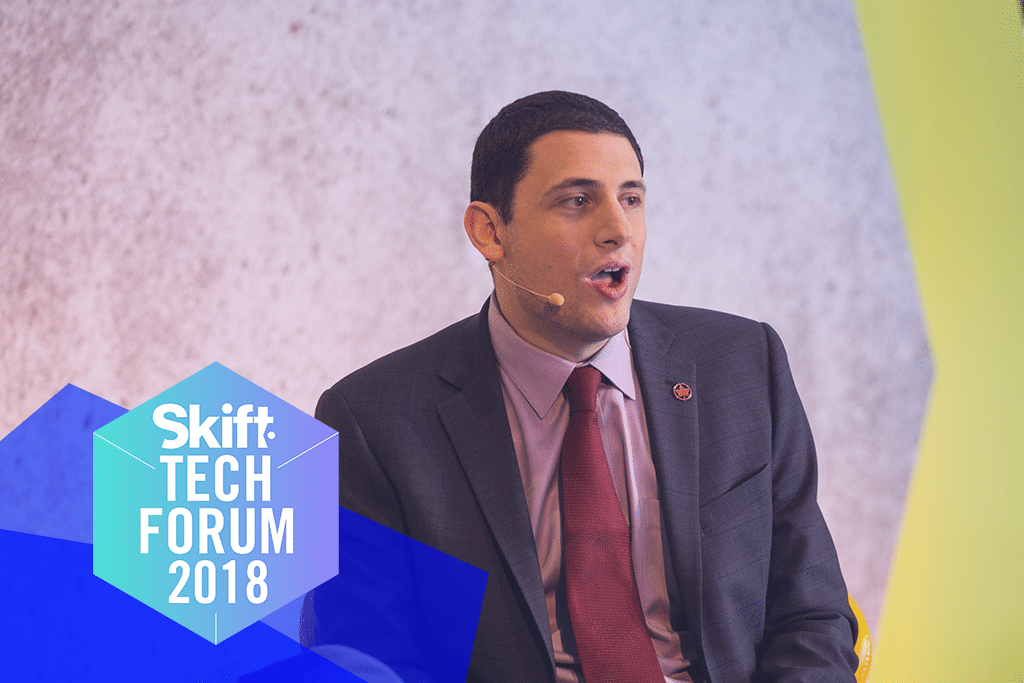Skift Take
Loyalty is big business, and Air Canada is working hard to create a forward-looking program that leverages advanced e-commerce techniques. The airline's acquisition of Aeroplan bodes well for scaling up its program over the next few years.
While loyalty programs have proliferated across the airline sector, Air Canada has taken a different approach after spinning off its Aeroplan loyalty program in 2005. It continued to outsource its program to Aeroplan, and perhaps fell behind in its loyalty offerings compared to North American competitors.
The airline, though, has recently brought Aeroplan back into the fold after some drama as its loyalty ambitions have shifted in a digital and mobile-first world.
Air Canada’s vice president of loyalty and e-commerce Mark Nasr detailed the airline’s loyalty plans at the inaugural Skift Tech Forum in June, before the company announced plans to bring Aeroplan back in-house. He remarked upon the shift towards leveraging customer data in more experimental ways that have emerged industry-wide over the last decade.
“The role of loyalty programs, both as a business in and of itself but even more importantly the role of the branding part of the program and data, that’s changed a lot in the last ten years,” said Nasr. “The natural decision was to take this back in-house and build a better program.”
His vision expands beyond the traditional frequent flyer program in order to offer a more compelling value proposition to flyers. By integrating loyalty into e-commerce and digital merchandising, Air Canada wants to empower itself to provide a more compelling experience for shoppers.
“The small L loyalty program is a points program and the traditional frequent flyer program,” said Nasr. “A capital L loyalty is the combo of the service our people provide, the brand, the products and the points program all together which are all wrapped up and primarily delivered through digital channels.”
The goal is to figure out new ways to profile loyalty members by emotions instead of demographic or psychographic measures. By understanding what emotions compel a traveler to buy, Air Canada can create more personalized offerings without having to delve into reams of personal data.
“To us, the core has to do with relevancy and respecting people’s time,” said Nasr. “What we’re going to know over time is do things like scarcity versus value versus fear, what are the kind of things that drive you? This is a very sensitive thing because you can learn what emotions drive someone, but you still need to deliver real value to customers in terms of offers that make sense that are relevant to them. You don’t want to offer things to people that they don’t want. Then you have to figure out the best marketing tactics.”
You can watch the entire interview above, or consider reading more coverage of Skift Tech Forum.
At Skift Tech Forum in Silicon Valley, travel tech executives gathered for a day of inspiration, information, and conversation.
For more details on the upcoming Skift Restaurants Forum and Skift Global Forum in New York City, please visit our Forum site for details.
The Daily Newsletter
Our daily coverage of the global travel industry. Written by editors and analysts from across Skift’s brands.
Have a confidential tip for Skift? Get in touch
Tags: Aeroplan, air canada, loyalty, skift tech forum
Photo credit: Air Canada Vice President of Loyalty and E-Commerce Mark Nasr at Skift Tech Forum 2018 Skift
